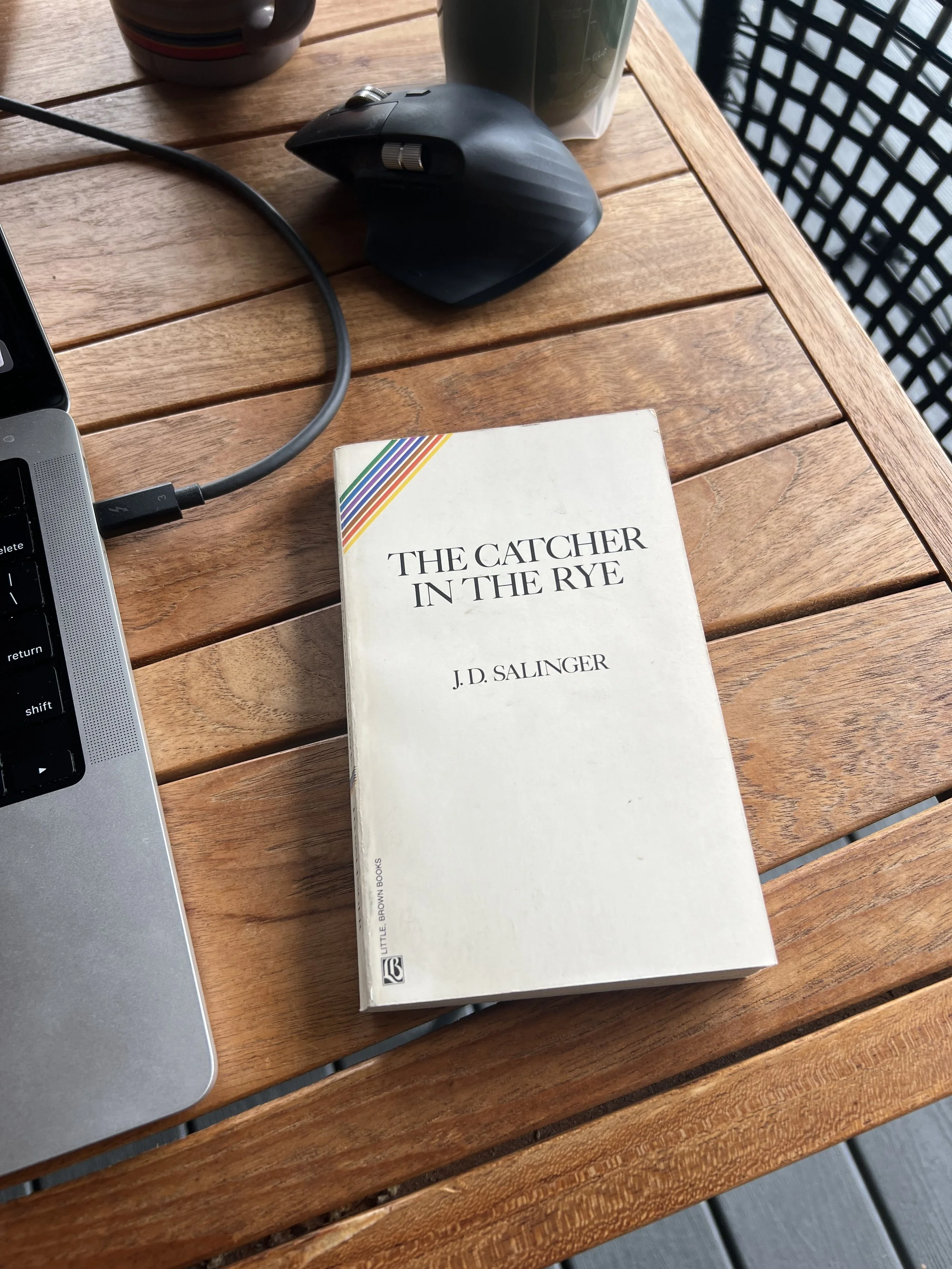The Four Stages of Reading That Changed My Life
It’s a little embarrassing to admit. I was “the smart kid.” I did well in school. I could memorize, test, perform. But somewhere between Hatchet in elementary school and the chaos of high school and college, I just stopped reading.
I coasted through on natural ability. I graduated with honors. I was elected student body president. But I wasn’t actually learning for myself. I wasn’t feeding my own curiosity. I wasn’t building depth. And the truth is—I knew it.
How does someone graduate with honors, lead their class as student body president, and still never read a book for fun? That was me.
It’s a little embarrassing to admit. I was “the smart kid.” I did well in school. I could memorize, test, perform. But somewhere between Hatchet in elementary school and the chaos of high school and college, I just stopped reading.
I coasted through on natural ability. I graduated with honors. I was elected student body president. But I wasn’t actually learning for myself. I wasn’t feeding my own curiosity. I wasn’t building depth. And the truth is—I knew it.
Stage 1: Fiction Rekindled
In my early 20s, Christina—my girlfriend at the time (now my wife of 21 years)—looked me in the eye and said, “You need to start reading again.”
So one afternoon, she walked me into a Barnes & Noble. I had never been inside a bookstore like that. Rows and rows of spines. Ideas stacked higher than I could see. It felt overwhelming.
Christina didn’t overcomplicate it. She picked up a small, mass-market paperback—Catcher in the Rye. Four dollars. She pressed it into my hands and said, “Start here.”
That summer in Denver, I carried it everywhere. Stuffed in my backpack on the bus to Whole Foods, where I worked as a cook. I read it on my breaks, sitting in the sun. I read it late at night on the couch after closing shifts, still smelling like the grill.
I didn’t understand everything Holden Caulfield was talking about, but for the first time in years, I enjoyed it. I finished it. And I asked Christina, “Now what?”
She smiled and said, “Now… we read another book.”
That was the beginning.
Stage 2: The Nonfiction Breakthrough
I started with classics I’d missed—fiction, literature, plays. But then I stumbled into nonfiction, and that cracked something open in me.
The early 2000s were filled with big, fresh ideas in leadership and business. I devoured Jack Welch’s Winning, Steven Covey’s 7 Habits of Highly Effective People, and Jim Collins’ Good to Great and Built to Last.
Those books gave me tools I’d never had—how to prioritize, how to think about systems, how to measure myself beyond test scores and grades.
Daniel Goleman’s Emotional Intelligence floored me. It showed me that success wasn’t just about brains—it was about self-awareness and relationships. Malcolm Gladwell’s The Tipping Point, Blink, and Outliers pulled me deeper, showing me how tiny details and hidden forces shape entire lives.
These weren’t “class assignments.” They were life assignments. And they were mine.
Stage 3: The Yale Years
When I got to Yale, my reading took another leap.
Suddenly I wasn’t just reading ideas—I was debating them with classmates from all over the world. I was challenged every day to defend, apply, or tear apart what I’d read.
Strategy through Michael Porter’s Competitive Strategy and Competitive Advantage.
Economics through Gregory Mankiw’s Principles of Economics, Milton Friedman’s Capitalism and Freedom,and even Adam Smith’s Wealth of Nations.
Modern thought through Steven Levitt’s Freakonomics and Nassim Taleb’s The Black Swan.
For the first time, I felt like I wasn’t just consuming ideas. I was wrestling with them. Testing them. Living them.
And Christina—who started this whole journey by putting a $4 paperback in my hand—was right there beside me, making me better every step of the way.
Stage 4: The Bible
Then, at 40 years old, I started again.
This time, with the biggest and most complex book of all: the Bible.
It’s not just a book of history or philosophy. It’s a book that asks questions no business case study will ever ask: Who are you? What do you believe? What’s your purpose?
You can read it daily and still uncover something new. It reshaped not only how I saw leadership, but how I saw family, faith, and legacy.
And unlike any business book, it doesn’t let you stay on the surface. It forces you deeper. It keeps pressing until you change.
The Power of a Book
Looking back, I’m amazed that it all started with Christina walking me into a bookstore. That small, ordinary moment set off an extraordinary chain reaction.
Books took me from fiction to frameworks. From Yale classrooms to questions of eternity.
They gave me tools, perspective, faith, and depth.
And all for the cost of a few dollars.
The best investment you can ever make is a book. For a few dollars, you get hours with a great mind—and the return lasts a lifetime.
